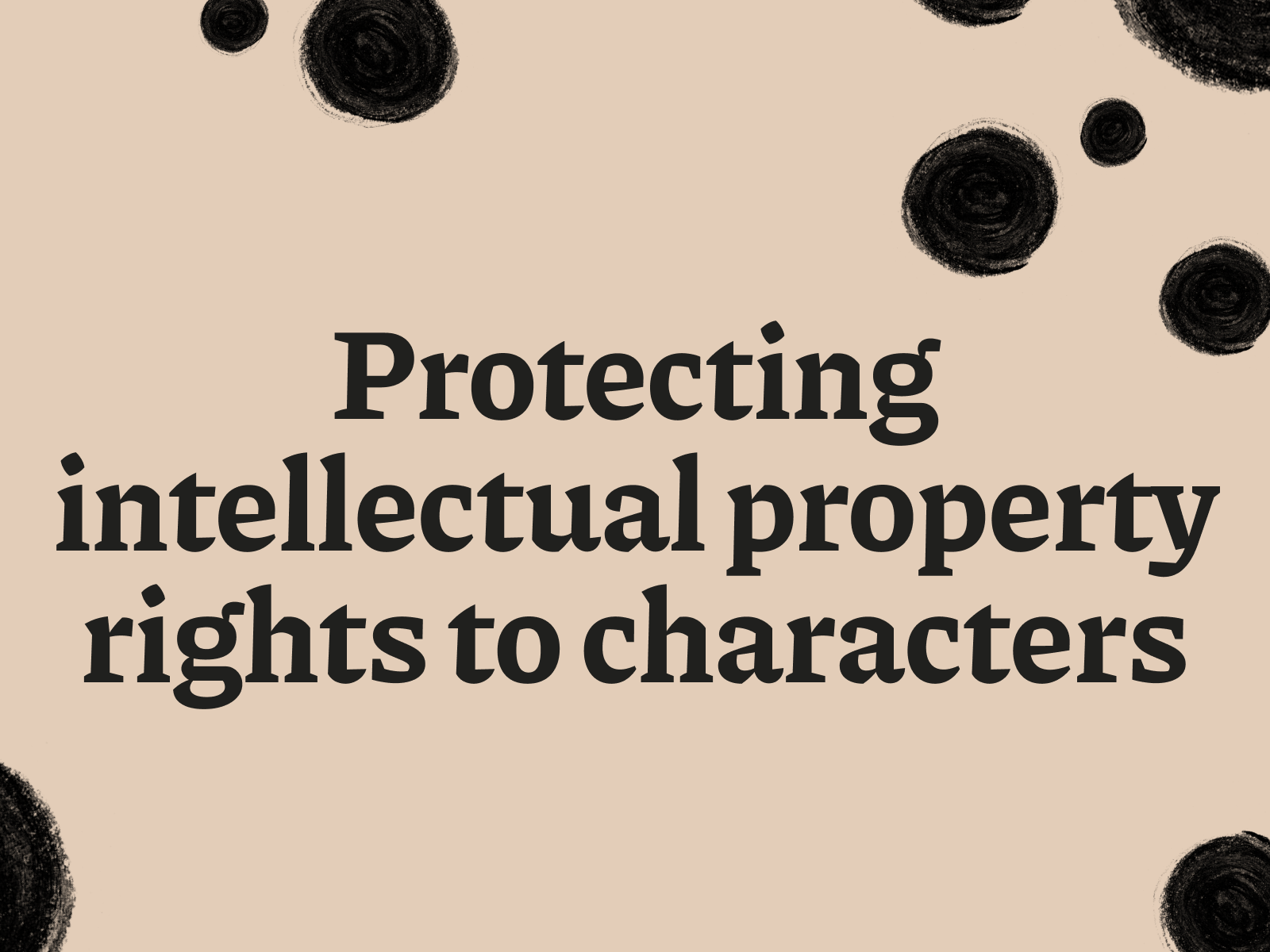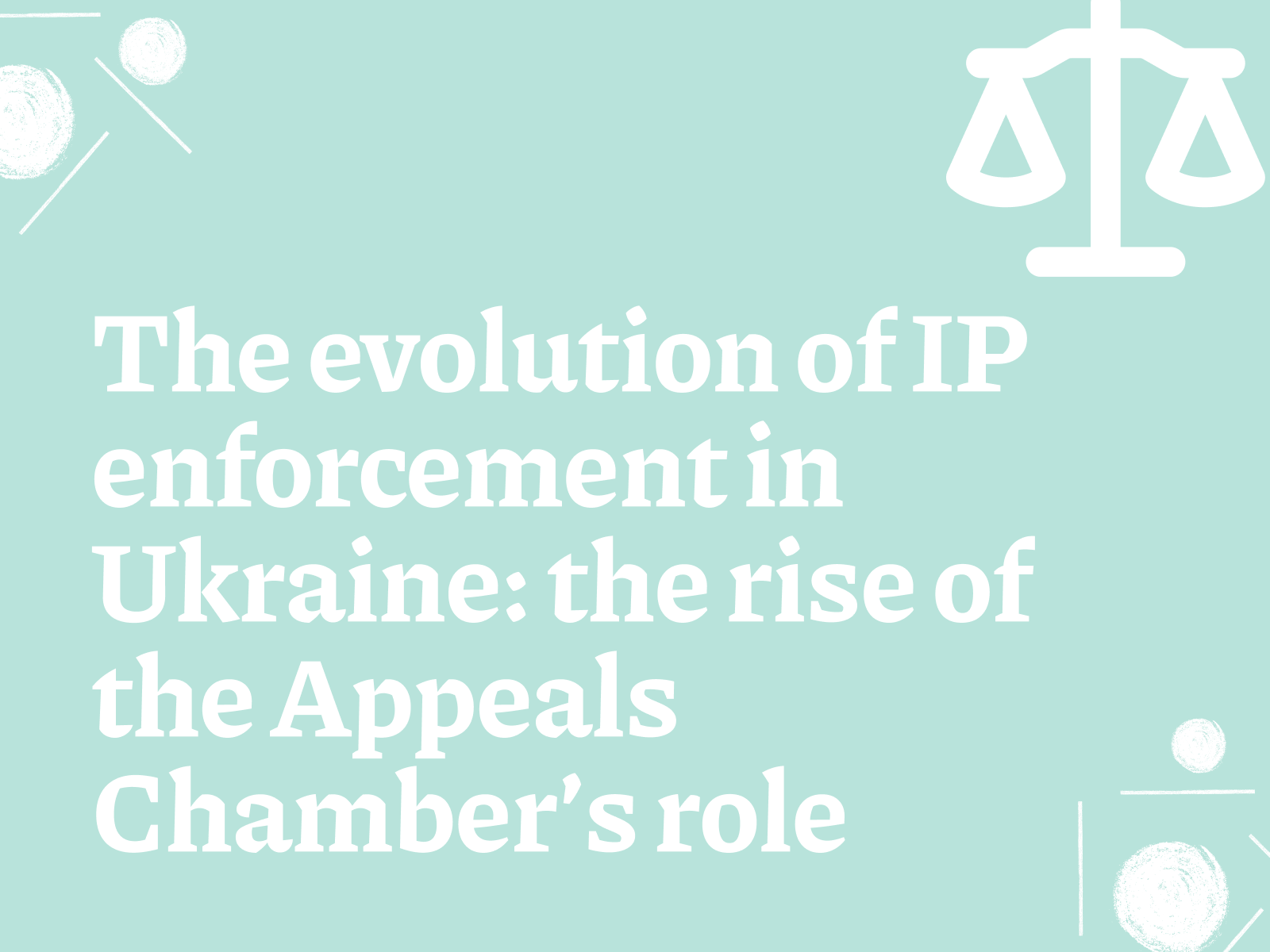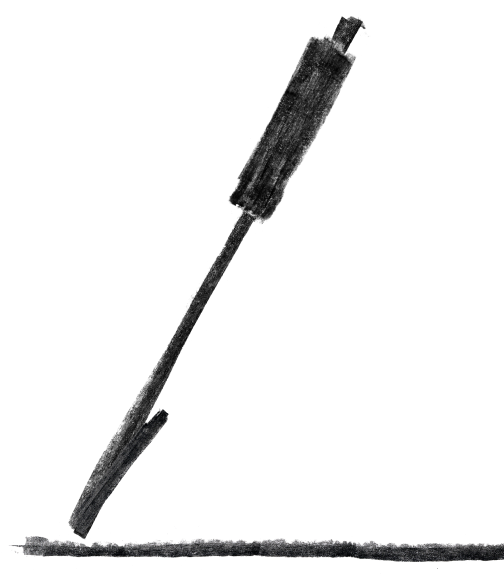In today’s competitive business environment, a logo plays a key role in shaping a company’s image and brand recognition. It is a visual symbol that is associated with your products or services, values and reputation. That is why logo protection should be a priority for every entrepreneur.
The most effective way to protect a logo in Ukraine is its registration as a trade mark. A trade mark is a designation used to distinguish the goods and services of one person from those of another. Registration of a trade mark gives you exclusive rights to use the logo and protects it from illegal copying or use by competitors.
In the following sections we will discuss in detail how to register a logo in Ukraine, the advantages of such a step and how Polikarpov Law Firm can help you in this matter.
How to register a logo in Ukraine?
Your logo is the face of your brand, a memorable visual element that is associated with your products or services. Registration of a logo in Ukraine as a trade mark is an important step to protect your intellectual property and prevent unfair use of your brand by competitors.
Step 1: Search and check for uniqueness
Before you start the registration process, it is important to ensure that your logo is unique and does not infringe the intellectual property rights of others. To do this, it is necessary to check the trade mark by searching databases of registered trade marks.
- Online databases: The Ukrainian Institute of Intellectual Property (UKRNOIVI) provides access to an online database of registered trade marks. You can independently search by keywords, images and classes of goods and services
- Law firms: contacting intellectual property lawyers is a reliable way to get professional legal assistance with searching and analysing available trade marks. Lawyers will be able to conduct a more in-depth search, including international databases, and assess the risks of potential conflicts.
Step 2: Preparing the necessary documents
You will need the following documents to apply for trade mark registration:
- Application for registration of a trade mark: this document contains information about the applicant (natural or legal person), the image of the logo, the list of goods and services for which the trade mark is registered, as well as the class of the International Classification of Goods and Services (ICGS).
- Logo description: a detailed description of all elements of the logo, including colours, fonts, graphic elements and their positioning.
- Document confirming the payment of the application fee: the amount of the fee depends on the number of ICTU classes for which the trade mark is being registered.
Step 3: Applying for registration
There are two ways to apply for trade mark registration:
- Online submission: you can submit your application online through the UKRNOIVI website. This method is convenient and allows you to track the status of your application in real time.
- Paper submission: the application can be submitted in person or mailed to UKRNOIVI.
Croc 4: Formal Examination
After the application is submitted, UKRNOIVI conducts a formal examination, which checks that the documents are correct, that all required data is available and that the fee has been paid. If errors are found, the applicant is given the opportunity to correct them.
Step 5: Substantive Expertise
This is the most important stage of registration, where UKRNOIVI experts analyse the logo for compliance with the conditions of trademark registration. The examination essentially includes:
- Similarity check with other trade marks: experts check if your logo is similar to already registered trade marks to avoid confusion among consumers.
- Assessment of distinctiveness: the logo must be distinctive and original enough to fulfil the function of individualisation of goods and services.
- Check for compliance with public policy and moral principles: the logo must not contain elements contrary to law or ethical standards.
Step 6: Registering and obtaining a certificate
If the substantive examination is successful, UKRNOIVI registers your trade mark and issues a certificate of registration. The certificate grants you exclusive rights to use the logo for 10 years with the possibility of further extension.
The term of trade mark registration in Ukraine is usually from 18 to 20 months, depending on the complexity of the application and the results of the expert examination.
Advantages of registering a logo: investing in your brand and protecting it
In the business world, where competition is constantly growing, your logo plays a key role in shaping your company’s image and brand recognition. Logo registration in Ukraine as a trade mark is not just a legal formality, but a strategic decision that provides your business with significant competitive advantages and protects it from unfair practices.
Let’s take a closer look at exactly what benefits your brand receives through logo registration:
- Exclusive rights to use:
The trade mark registration certificate grants you exclusive rights to use your logo in Ukraine for 10 years with the possibility of further renewal. This means that no one else has the right to use an identical or confusingly similar logo for goods or services of the same class as yours. Exclusive rights allow you to:
- Control the use of your logo: you decide how, where and when to use your logo. You can use it on your products, packaging, promotional materials, website and social media.
- Prevent copying and imitation: exclusive rights give you the legal tools to fight companies that try to copy or imitate your logo, misleading consumers and damaging your reputation.
- Defence against unfair competition:
In a competitive business environment, defence against unfair competition is critical. Registering your logo as a trade mark provides you with legal mechanisms to combat such actions as:
- Use of a similar logo by competitors: you can prohibit other companies from using a logo that is confusingly similar to yours and may mislead consumers about the origin of goods or services.
- Counterfeit goods: registering a trade mark helps to combat counterfeit goods that can damage your reputation and consumer confidence.
- Inappropriate use of the logo: you can control the use of your logo by third parties and prevent it from being used in a way that is harmful to your image.
- Brand Value Enhancement:
A registered logo becomes a valuable asset to your company. It contributes to:
- Brand recognition: a logo is a visual element that is memorable and associated with your brand. The more often consumers see your logo, the better they remember your brand and associate it with certain qualities and values.
- Consumer confidence: registering a trade mark demonstrates your seriousness and responsibility, which helps build consumer confidence in your brand.
- Increase company value: a strong brand with a registered logo increases the value of your company and makes it more attractive to investors and partners.
- Licensing and franchising opportunities:
Registering your logo opens up new opportunities for you to expand your business and generate additional income:
- Licensing: you can grant licences to other companies to use your logo for a fee. This allows you to expand the reach of your brand and generate additional revenue streams.
- Franchising: a registered logo is an important element of the franchise business model. It allows franchisees to use your brand and business model, contributing to the expansion of your network.
- International defence:
Registering your trade mark in Ukraine gives you the opportunity to apply for international registration under the Madrid system. This system simplifies the process of trademark registration in many countries around the world, allowing you to protect your logo on a global level.
- Strengthening positions in litigation:
In the event of a legal dispute over logo rights, a trade mark registration certificate serves as strong evidence of your ownership. It strengthens your position in court and increases the chances of a successful resolution of the dispute.
Logo registration is a strategic investment in your brand that ensures its long-term protection, promotes business success and opens up new opportunities for growth.
Legal support from Polikarpov Law Firm: your reliable partner in the intellectual property field
Polikarpov Law Firm is a team of experienced lawyers specialising in intellectual property protection, including trademark and logo registration. We understand the importance of reliable protection of your brand and offer a full range of legal services to ensure successful registration of your logo and its effective protection.
Our logo registration services include:
- Searching and analysing for uniqueness: we conduct a thorough search of registered trade mark databases to ensure that your logo is unique and does not infringe the intellectual property rights of others.
- Document preparation: we will help you to properly prepare all the necessary documents to apply for trade mark registration, including the application, logo description and other necessary documents.
- Submission and support of the application: we submit the application to UKRNOIVI and support it at all stages of consideration, including formal and substantive examination.
- Advice and legal support: our lawyers provide you with expert advice on all matters related to the registration and protection of trade mark.
In addition to logo registration, we also offer a wide range of intellectual property services such as:
- Patent registration
- Copyright protection
- Combating counterfeit products
- Representation in litigation.
When you turn to Polikarpov Law Firm, you get a reliable partner who will help you protect your brand and ensure its successful development.
Conclusions
Logo registration in Ukraine is an important step for any company seeking to protect its brand and ensure its long-term success. A registered trade mark gives you exclusive rights to use your logo, protects you from unfair competition, increases brand value and opens new opportunities for business development.
If you are wondering how to register a logo, where to patent a logo or how to check a trade mark, contact the professionals.
Polikarpov Law Firm is ready to become your reliable partner in intellectual property protection.
Contact us today and invest in protecting your brand now!
Can I register a logo that contains elements that have already been used by other companies?
Registration of a logo containing elements that have already been used by other companies is possible, but depends on several factors:
- Uniqueness of the logo as a whole:
- Even if individual elements of the logo are similar to elements of other logos, your logo can be registered if the overall impression is unique and does not pose a risk of confusion with other brands.
- It is important to consider the combination of colours, fonts, positioning of elements and overall style.
- Company Scope:
- If companies with similar logos operate in different business sectors, the likelihood of your logo being registered increases as the risk of brand confusion is minimised.
- For example, a lion logo can be used by both a car company and a clothing company.
- Geographic location of companies:
- If companies with similar logos are located in different regions or countries, the likelihood of your logo being registered also increases.
It’s important to remember:
- The use of copyrighted elements without the authorisation of the copyright holder is an infringement of the law.
- Even if your logo is registered, the owner of a similar logo can sue for intellectual property infringement.
Recommendations:
- Search: Before registering a logo, it is advisable to search for similarities with other registered trade marks and logos. This will help avoid potential problems in the future.
- See a lawyer: a lawyer specialising in intellectual property will be able to assess your logo and advise on whether it can be registered.
Contact our company and we will help you register your logo and protect your intellectual property rights!
Can I use my logo without registering it?
Yes, you can use your logo without officially registering it as a trade mark. But the lack of registration significantly limits your rights and options to protect your logo.
Restrictions when using an unregistered logo:
- Territorial limitation: the protection extends only to the territory where the logo is actually used.
- Difficulty proving rights: in the event of a dispute, it will be difficult to prove that you are the primary owner of the logo and have exclusive rights to it.
- Limited protection: you may not be able to take advantage of all the legal protections available to registered trade marks.
Risks of using an unregistered logo:
- Other companies may register a similar logo: this may result in a ban on the use of your logo and a claim for damages.
- Consumer confusion: similar logos can mislead consumers and damage your reputation.
- Complications in scaling a business: the lack of a registered trade mark can make franchising, licensing and other forms of business expansion difficult.
Advantages of registering a logo:
- Exclusive Right of Use: registration grants you the exclusive right to use the logo throughout the country.
- Easy to prove rights: a trade mark certificate is the official document that confirms your rights to the logo.
- Broad defences: you can use all legal defences against trade mark infringement.
- Brand Value Enhancement: A registered logo is a valuable asset that increases the value of your brand.
To ensure that your logo is well protected and to avoid potential problems, we recommend registering it as a trade mark
Can a logo registration be cancelled?
Thus, registration of a logo as a trade mark may be cancelled in certain cases. This may happen by decision of a court or the relevant state body dealing with intellectual property issues.
The main reasons for cancelling a logo registration:
- Non-use: if a registered trade mark (logo) is not used for a long period (usually 3-5 years), its registration may be invalidated.
- Loss of distinctiveness: if a logo has become a generic term for a particular type of goods or services, it loses its distinctiveness and the registration may be cancelled. For example, the word “photocopier” has become a common term for photocopiers.
- Misleading: if a logo misleads consumers as to the origin, quality or characteristics of goods or services, its registration may be cancelled.
- Infringement of third party rights: if a logo registration infringes the intellectual property rights of third parties, such as copyright or rights to another trademark, it may be cancelled.
- Contrary to public policy or moral principles: logos containing obscene images or contrary to public policy cannot be registered and are subject to cancellation.
Registration Cancellation Procedure:
Cancellation of a logo registration is usually effected by filing a lawsuit with a court or the relevant public authority. The plaintiff must provide evidence that the logo registration meets one of the above-mentioned grounds for cancellation.
Consequences of cancellation of registration:
Once a logo registration is cancelled, the owner loses the exclusive rights to use it. This means that others can use a similar logo without the risk of infringing intellectual property rights.
To retain rights to the logo, it’s important:
- Actively use it in commercial activities.
- Ensure that the logo does not become a commonly used term.
- Avoid using elements that may mislead consumers.
- Ensure that the logo does not infringe the rights of third parties.
Can I change my registered logo?
The ability to make changes to a registered logo depends on the nature and extent of those changes.
Minor changes:
- Minor changes to the logo that do not affect its overall impression and distinctiveness are generally allowed.
- Such changes may include:
- Colour palette correction.
- Change the font (as long as the overall style is maintained).
- Minor editing of design elements.
- In such cases, re-registration of the logo is not required.
Significant changes:
- If the changes significantly affect the overall appearance of the logo and its recognisability, a new registration must be made.
- Such changes include:
- Change the main character or image.
- Adding new elements that dramatically change the composition.
- Changing the style of the logo (e.g. from minimalistic to detailed).
- In this case, the previous registration becomes null and void.
Amendment Procedure:
- To make minor changes:
- Notify the appropriate government intellectual property authority of the changes.
- Provide an updated image of the logo.
- To register a new logo:
- Apply for registration of a new trade mark.
- Follow the standard registration procedure, including examination and publication.
Recommendations:
- Before making changes to your logo, consult a lawyer who specialises in intellectual property. He or she can help you determine if the changes require a new registration.
- If you are planning significant changes, prepare for the new registration in advance to avoid a break in the legal protection of your logo






